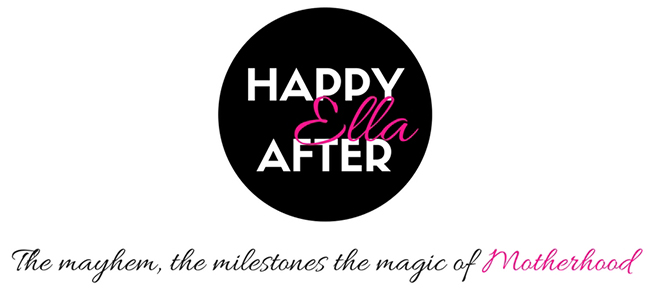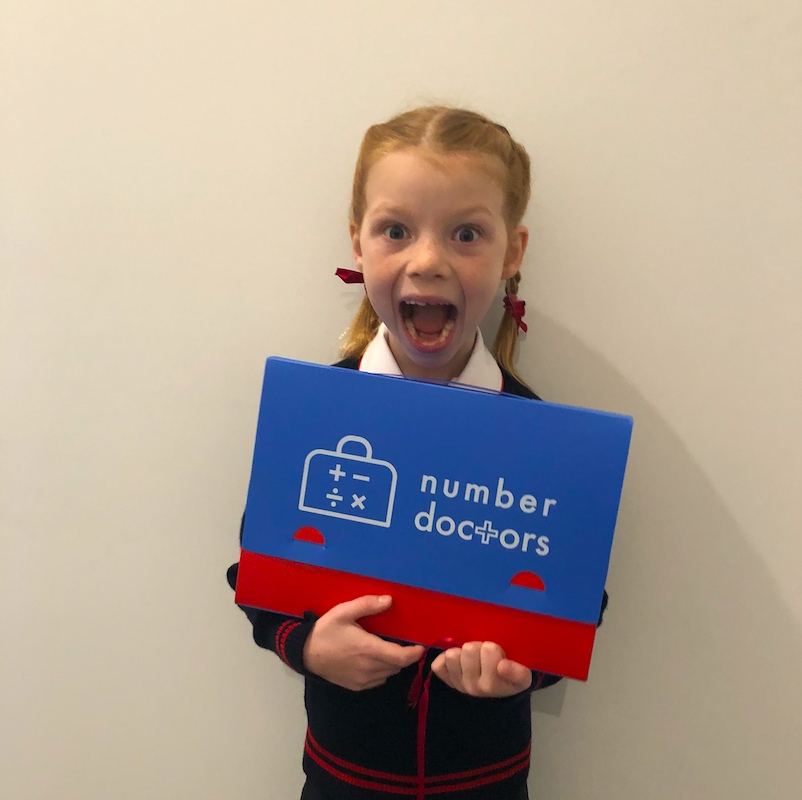Maths. If someone asked you ‘are you good at maths?’, what would you say? Chances are, if you were good at it, you loved it. Chances are, if you were ‘bad’ at it, you hated it. Research tells us that people are very clear in their feelings about maths. You were either good at maths, or bad at maths. You also developed this self perception really early, probably around the age of 6 or 7 in year one. It’s so sad that many people growing up hating maths, and what is even worse is the fact that when they have children, they can easily pass on this negative outlook to them.
As a school leader, one of my key messages to parents during prep transition is – ‘your child’s self perception of mathematics greatly depends on you. If you loved maths, great. If you hated it, then you’ll need to fake it. Always, always, always tell your children that they can be good at maths. Always tell them that you love maths’. It really is so important.
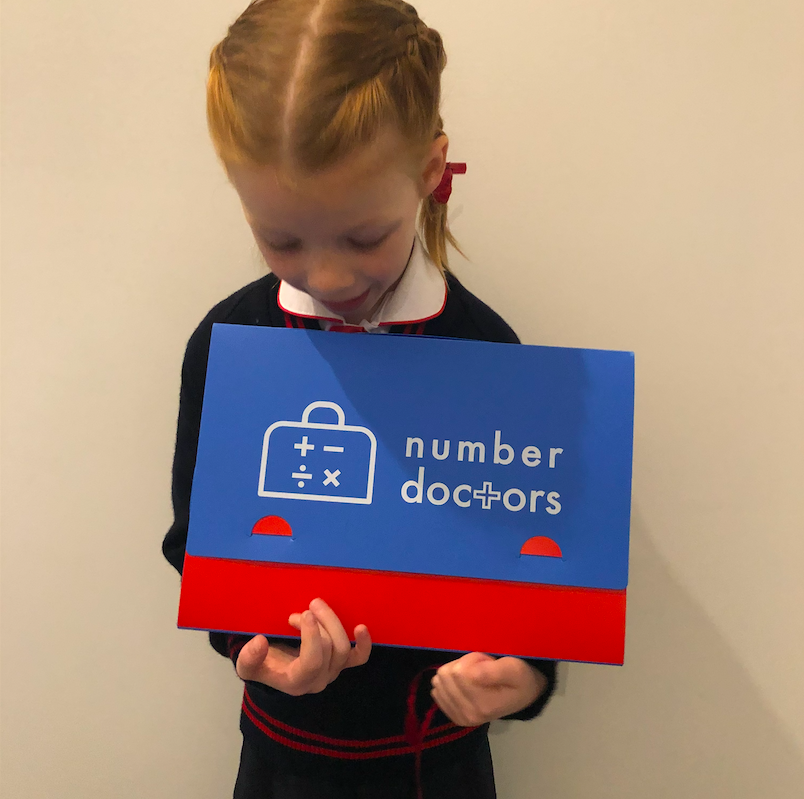
So what happens then, if you genuinely feel as though maths isn’t your thing, and you really struggled at school. How do you help your child develop some sound, fundamental skills in place value, if you yourself have no idea where to start. Number Doctors is the brain child of Dr Angela Rogers and Dr Bern Long. The goal of Number Doctors is to strengthen the home-school links for Primary School Children in Mathematics. So many parents have expressed to their feelings of helplessness when working with their children at home in Maths. They often comment “I can help with reading, but I have no idea what to do with Maths”. Number Doctors is specifically designed to help these parents and aims to improve the quality of Mathematics Education provided to all students.
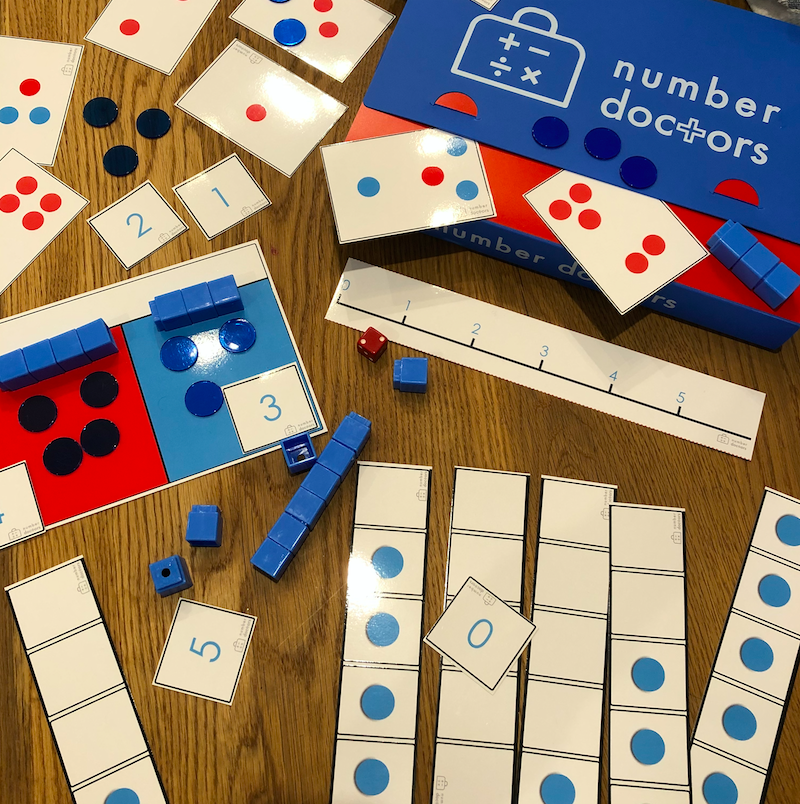
As a Mother and a teacher, I have used their program with my daughter Ella (who is in prep) and my son Hudson (who is four). An online course, coupled with some very simple, yet clever resources helps guide you through the process of helping children to recognise, order and user numbers developmentally. The best thing, is it guides parents through the stages with videos. It literally takes you through an inquiry into each skill and develops your knowledge of not only the maths concept, but how to teach it.
It’s an interactive and simple process:
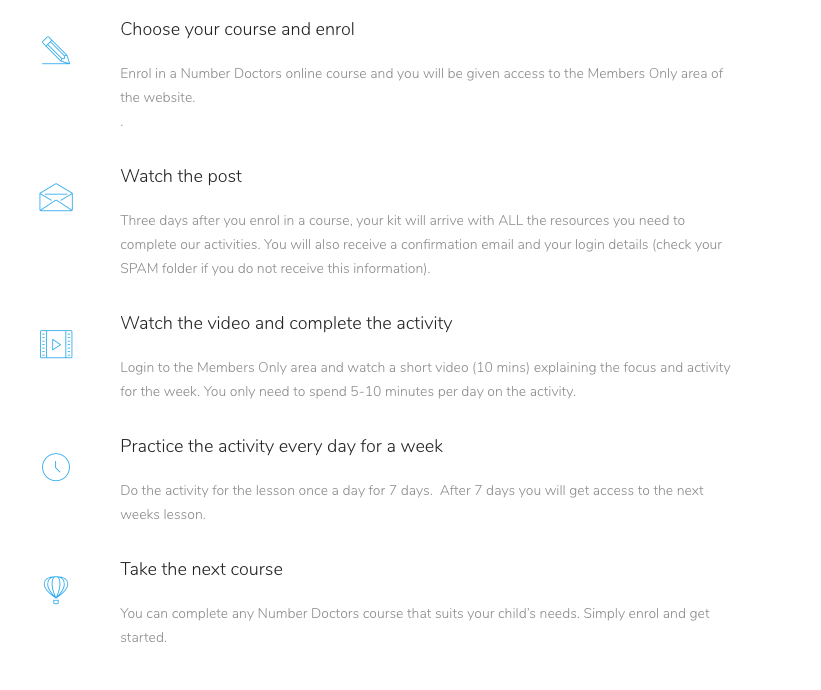
I need to mention that I have had the privilege of knowing Angela for a long time. Angela and I studied teaching together and also completed our Masters together. After teaching in a school for several years, Angela’s passion for mathematics was very obvious and so she decided to take it further by completing her Doctoral studies in Mathematics, and in particular focussing on place value. I know her passion, and I know how amazing she is as a teacher. I’m so proud to share resource with other families.
Let’s hear more about how it all began!
Tell us a bit about your business, your dream, your story
My dream is to improve the teaching and learning of maths through creating strong links between home and school. About 15 years ago, I started my career as a Primary school teacher. I saw how important the links between home and school were in Literacy. Parents knew they were helping their child by listening to the nightly ‘reader’, but this wasn’t the case in maths. When my eldest daughter started Foundation I saw school from a parent’s perspective. My husband would ask me questions like “how is subtraction taught now? ” and I realised parents needed knowledge of how maths was taught to best support their child. However, for the majority of parents, even the words schools used to describe maths were like a foreign language!
In 2014, having completed a PhD in primary school maths education, I started running maths Professional Development (PD) for teachers- I found myself constantly encouraging schools to involve parents. One day a teacher said to me “I would love you to teach our parents about maths”. That started me thinking. I spoke to my colleague Dr Bern Long, who was seeing great results through involving parents at her school in maths education. Bern and I discussed creating videos for parents to simplify and explain the teaching of maths. We wanted to build a ‘bridge’ between home and school…so Number Doctors was born!
Why did you create this product?
Bern and I created Number Doctors to support the many parents want to help their children in maths but are usure where to begin. In desperation, parents often turn to costly private tutoring. As maths educators this worries us, as the teaching approaches and language used by many tutoring companies does not align with the teaching we do in schools. The aim of Number Doctors is to ensure parents can mirror and reinforce the work that is done in classrooms.
How does it help children learn?
The ‘School Starter’ course is designed for parents with 4-6 year olds. The course has 3 pre-requisites: Children must be able to count forwards and backwards from 1-10, count a collection of 5 objects and recognise the numbers 1-10. Some children will have these skills at age 4, and some not until they are 6. Depending on when parents complete the course, it will have different benefits for different children.
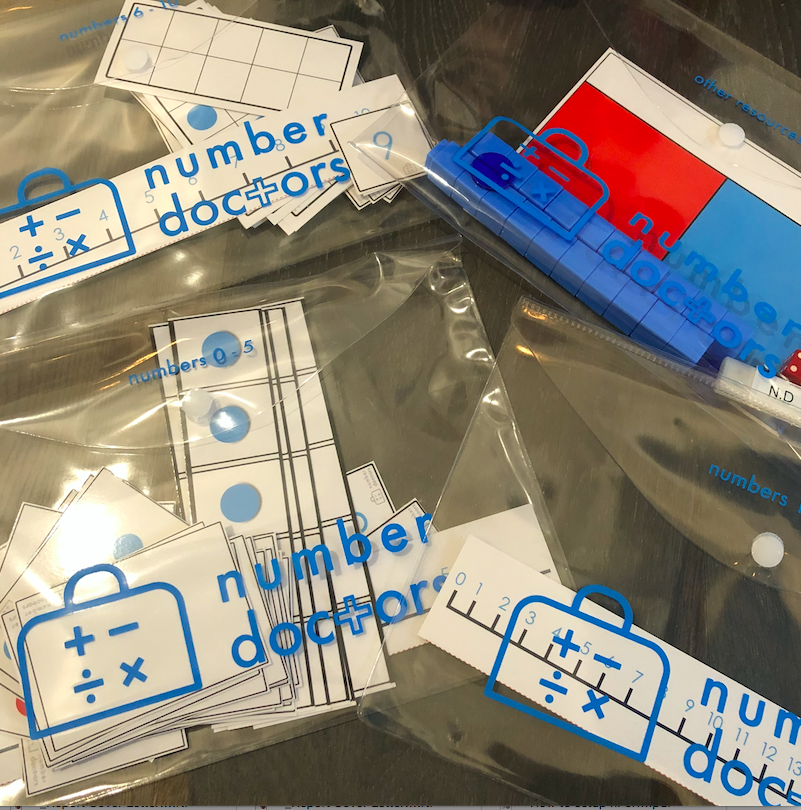
If the course is completed before a child begins school, they will be given a “heads up” on the maths learning that will happen in the coming year. They will be exposed to the resources they will see in class- like counters, blocks and 5 frames and become comfortable with these before school. If the course is completed during a child’s first year at school or even in early Year 1, the activities will consolidate the learning happening at school and ensure any ‘gaps’ are filled. Either way the course is a win-win for children’s learning of maths!
How does it help parents?
Many children come to school and their parents have worked really hard to teach them skills like counting to 100. While this is a great achievement, our ‘School Starter’ course shows parents the actual skills that are critical for children to develop in their first year of school. Having this knowledge empowers parents and allows them to feel like partners in their child’s education. We believe parents are then less likely to need expensive weekly tutoring to support their child, as they will have the knowledge, confidence and resources to help their child in their own lounge room!
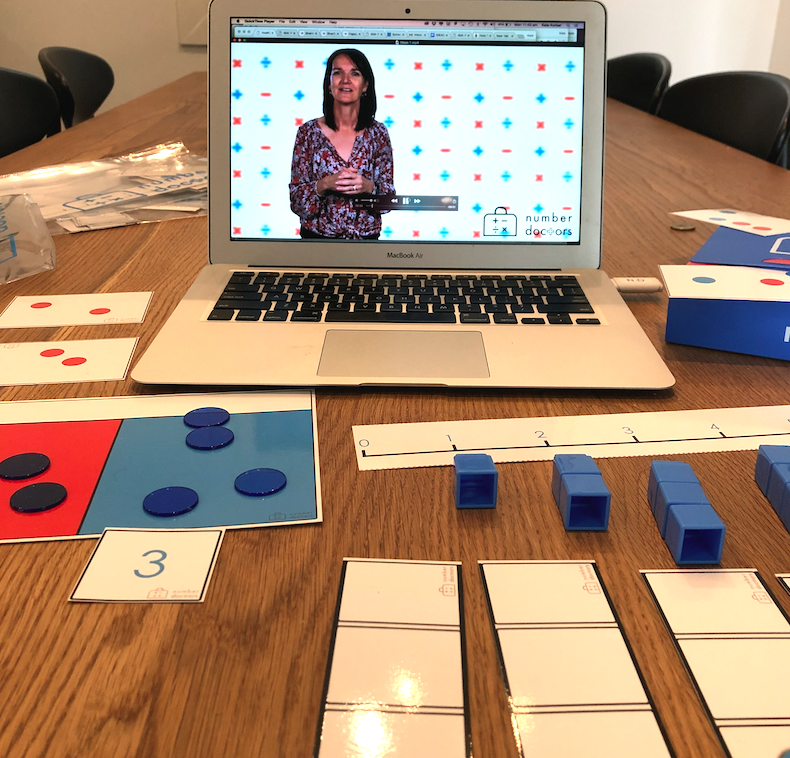
Magic: What is the most magical thing that has happened to you as a small business owner?
For me it is very rewarding to see that both parents and teachers are excited about Number Doctors. One mum told me “I didn’t want to do the wrong thing with my son so I sent him to tutoring- but after the course I now realise I can easily do things at home to help”. While just last week a teacher commented “I want every parent in my class to do this course!”. To me these comments are magical as they mean we have created a product that truly creates a bridge between home and school.
Mayhem: What has been your greatest challenge, moment of mayhem?
Whilst we were beginning to set up Number Doctors my husband was offered a contract position in another state(!). I stayed in Melbourne with my 3 daughters (18months, 6 and 10), continued to work at RMIT and in our teacher PD Business ‘Simply Maths’. At night, after the girls were in bed I would work on Number Doctors. These 10 months were by far my greatest challenge, but I was very proud when in March this year we were able to finally launch Number Doctors. I am now happily sharing the highs and lows of the business with my husband who is back living under the same roof- which is a big relief!
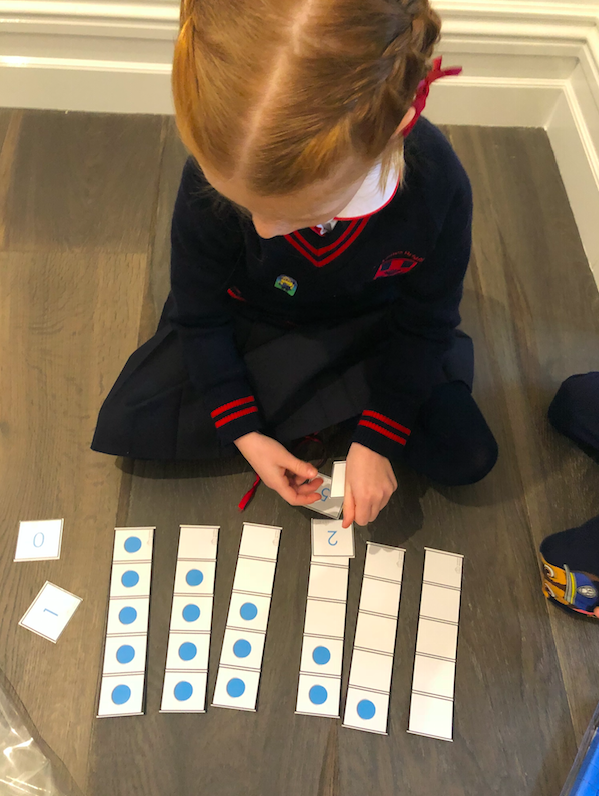
Milestone: What has been your greatest achievement, milestone?
Our first sale of a “Number Doctors” kit was a pretty big milestone. I remember exactly where I was when the order came through! I was so excited, as were my daughters. I remember my 6 year old said “that’s so great mum, all your hard work has paid off!”. It was very poignant because as anyone who runs a small business knows- it is a lot of hard work and I was so proud she had linked the “hard work” with “success” (albeit one sale!). I knew then that my girls were learning just as many priceless life lessons watching me set up the business as I was running it.
Advice: what advice do you have for parents who are trying to help their children develop their numeracy knowledge in preparation for school?
It is recommended that parents read 1000 books to their child before they start school- about one a day. But there is no recommendation for Numeracy! I’m going to go on the record and say that I think parents should also aim to have 1000 “experiences” of numeracy with their child before school. An ‘experience’ could be as simple as counting out aloud the number of plates you are getting out for dinner or doing a puzzle together or playing Snakes and Ladders or Uno or cooking together or just talking informally about the seasons or the days of the week as you drive in the car. Every experience helps children make sense of mathematics in their world and allows them to see that maths is fun! Above all, remember that the equivalent of reading a book in literacy is playing a game in numeracy- so my advice is- play!

